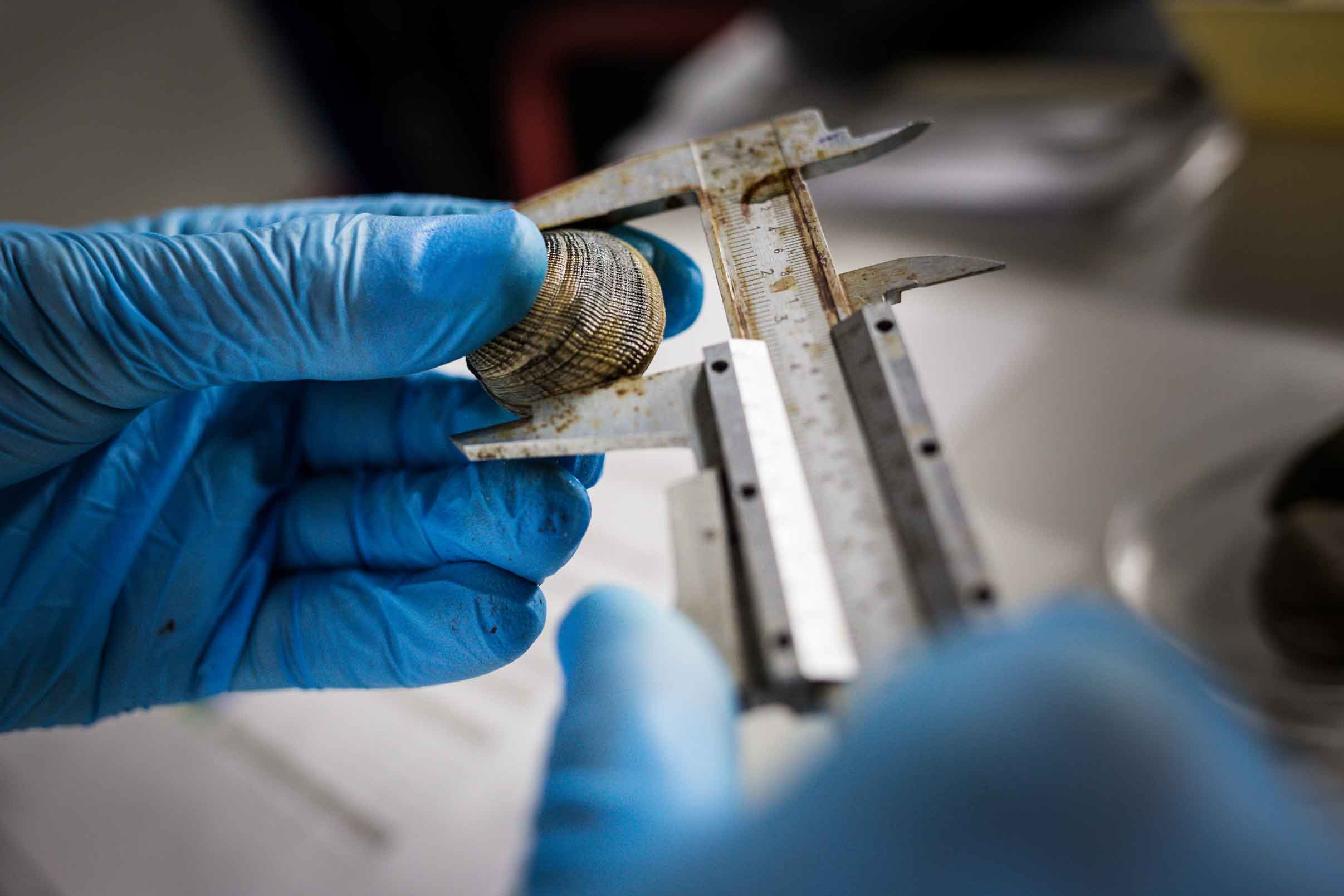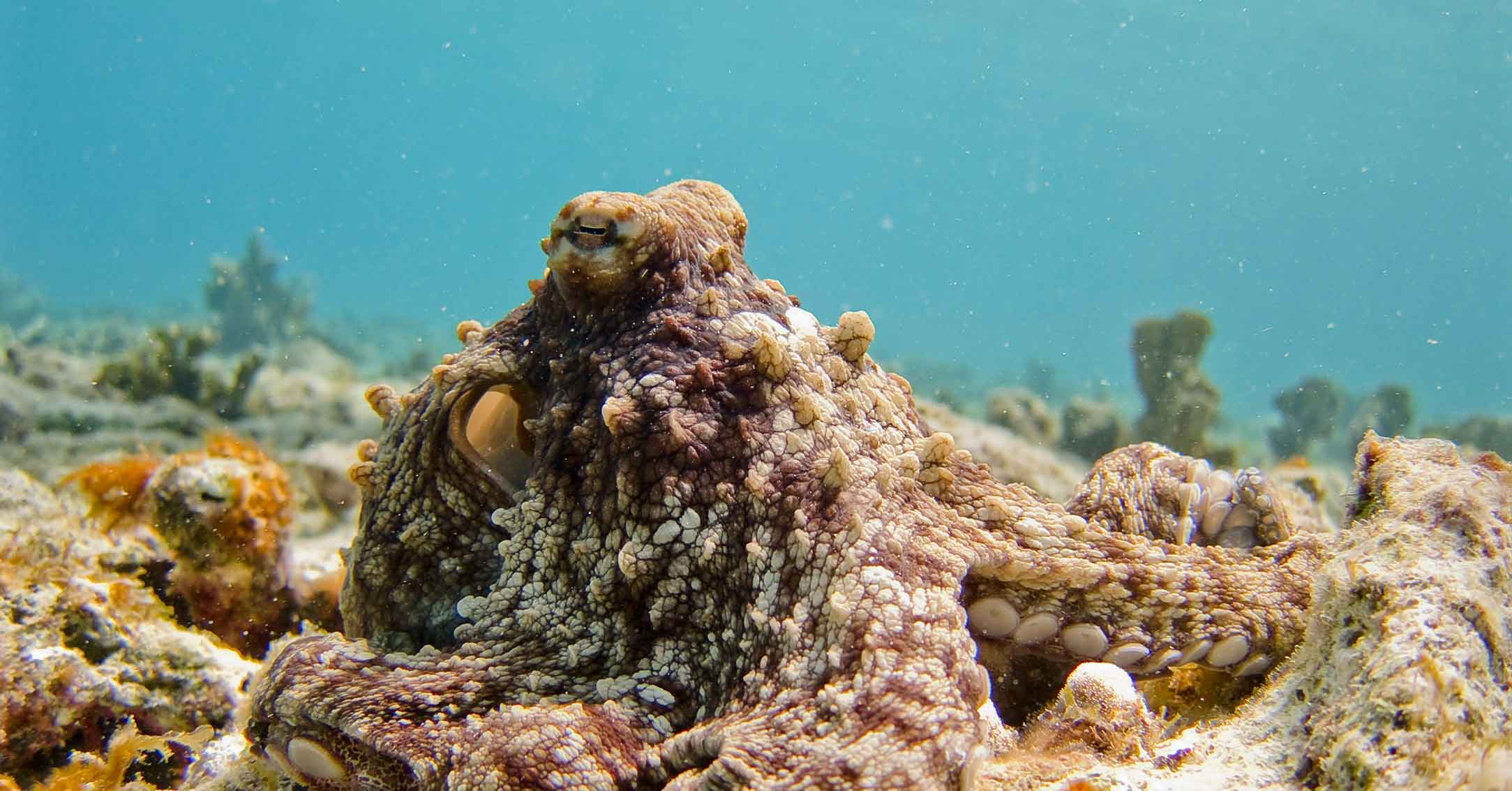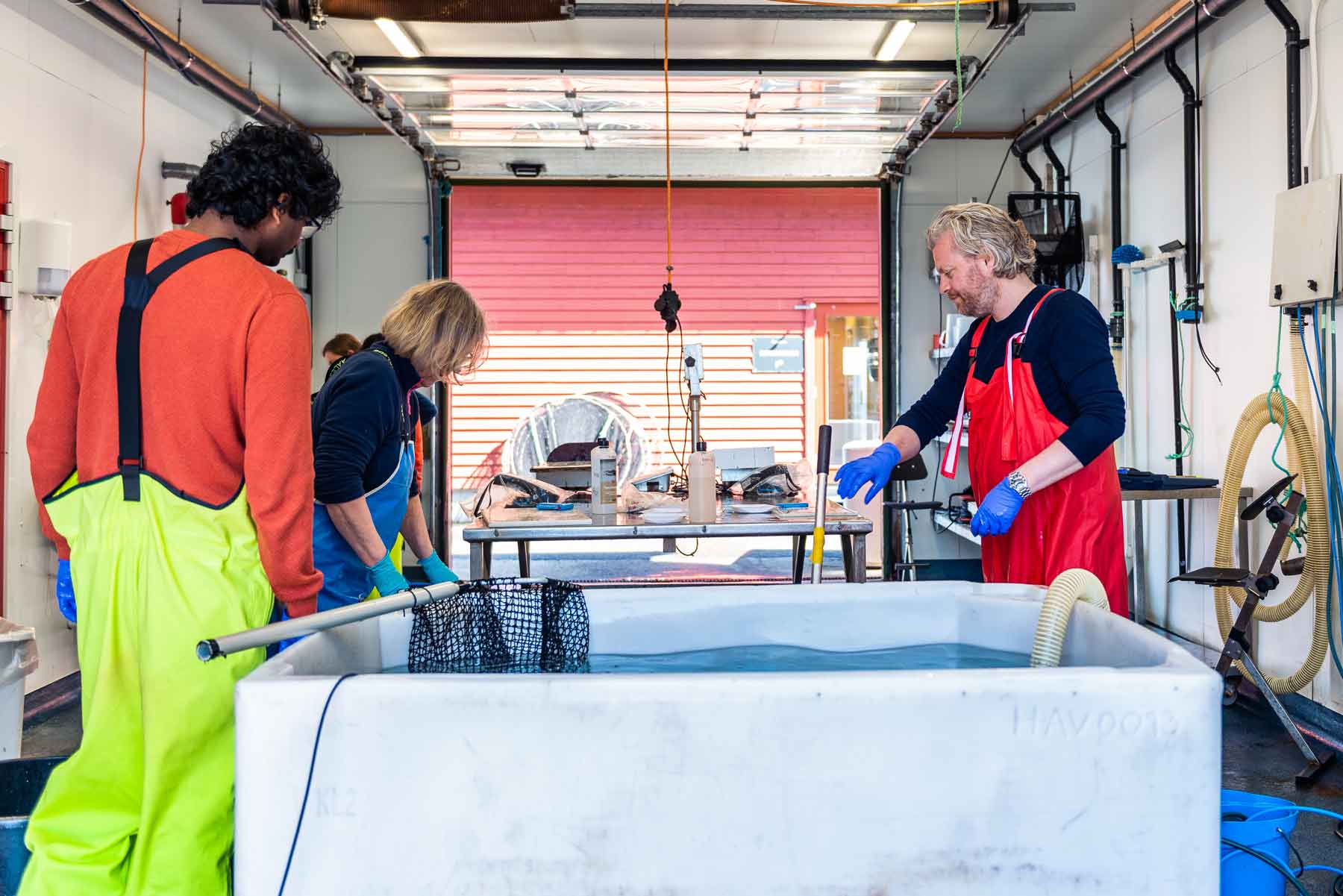When people think about the study of the ocean, their first thought is often about how marine biological discoveries can help the environment and our move towards a sustainable Blue Economy. And, while this is true, many people are surprised by the benefits marine research can have for studies into human health and the treatment of diseases.
How cockles shed light on the molecular drivers of cancer
Discoveries that originate from marine life can have tangible impacts for humans. For example, a recent study looked at cancers that can spread between individual cockles – called bivalve transmissible neoplasia (BTN) – and cause leukaemia-like disease. By studying 390 tumours from 6,854 common cockles (Cerastoderma edule), researchers found genetic mutations that may have been caused by chemicals. This type of work could give insight into how cancer evolves at the molecular level, including how cells adapt and why they might develop resistance to treatment.
 @EMBRC Portugal, ACOI - Coimbra Collection of Algae, F. Martinho, Cockle
@EMBRC Portugal, ACOI - Coimbra Collection of Algae, F. Martinho, Cockle
How marine model organisms can boost oncology research
Research into cancer, its causes, risk factors, incidence rates, and possible treatments is moving forward all the time as researchers find new and innovative ways of finding out more about the disease. Among these innovations is the use of ocean life within cancer research. “Marine biological models play a critical and precise role in supporting cancer research,” says Kamila Sfugier Tollik, EMBRC’s EU Projects Technical and Coordination Officer.
Marine organisms can provide cancer researchers with important insights. “The unique biological features of marine organisms, including transgenic marine models, offer unparalleled opportunities to delve into the genetic and molecular underpinnings of cancer,” says Sfugier Tollik. “These models, ranging from simple organisms like marine sponges to more complex cephalopods, possess unique adaptations and life processes that provide fresh insights into cancer biology, significantly contributing to our understanding and treatment of the disease.”

@Copyright Unsplash Vlad Tchompalov - picture of a cephalopods, octopus
How are marine model organisms used to study cancer?
"studies using marine models have shed light on novel DNA repair pathways that could be harnessed to improve the efficacy of cancer treatments in humans.”
Sfugier Tollik, EMBRC’s EU Projects Technical and Coordination Officer
There are several key areas where marine model organisms are particularly useful for cancer researchers. By studying the genetics and epigenetics of some marine species, we can learn about cancer pathways in humans. “Marine organisms can show unique DNA repair mechanisms and resistance to genetic and epigenetic changes caused by environmental stressors,” explains Sfugier Tollik. “For instance, studies using marine models have shed light on novel DNA repair pathways that could be harnessed to improve the efficacy of cancer treatments in humans.”
They can also allow researchers to study how tumours grow, develop and metastasise. “By engineering marine organisms to mimic cancerous conditions, researchers can use these models to investigate how cancer can progress in humans,” adds Sfugier Tollik. “This gives them novel ways of screening potential anti-cancer compounds and finding new treatments more quickly.”
They can also lead to the discovery of biomarkers which enable scientists to detect the disease sooner and monitor its progression. “These models can also help identify novel therapeutic targets, offering pathways to innovative treatment options that might be less toxic and more effective than current therapies,” says Sfugier Tollik.
Marine models are also used when researchers study the impact of environmental and lifestyle variables, such as pollution and UV radiation, and how they might affect the development or progression of cancer. Understanding the influence of these external factors can help us better understand risk factors and inform ways of preventing cancer development.
EMBRC's role in advancing cancer research
EMBRC has recognised the potential for marine biological research to support cancer studies within the Horizon Europe Work Programme for Research Infrastructures. In particular, its quest for solutions aligns with the EU’s Mission on Cancer (to improve the lives of more than three million people by 2030 through prevention, cure and for those affected by cancer including their families, to live longer and better) and Europe's Beating Cancer Plan (a political commitment to leave no stone unturned to take action against cancer).
As part of the canSERV consortium – a Horizon Europe project that aims to offer interdisciplinary and customised oncology research services to scientists across the entire cancer continuum – EMBRC can help leverage the benefits of marine model organisms to the field of oncology. Its services and facilities for marine biology and ecology can also widen canSERV’s research offering so scientists have an even broader portfolio to choose from.

@EMBRC Norway - IMR Austevoll Research Station - Fish sampling room
This has been made possible through EMBRC’s crucial role in the Transnational Access (TNA) programme. EMBRC is capitalising on the specific expertise of three marine stations within its network: Institut de la Mer de Villefranche (IMEV), Stazione Zoologica Anton Dohrn (SZN), and the Centro de Ciencias do Mar (CCMAR).
“This collaboration highlights a strategic effort to bring together diverse and complementary expertise from various research infrastructures across Europe,” says Sfugier Tollik. “By integrating knowledge from marine biology with oncology and other relevant disciplines, the consortium promotes interdisciplinary research, driving innovation and the development of new solutions for cancer care.”
canSERV open call
canSERV has now launched its Challenge Call and is inviting European and non-European researchers to apply for free access (physical and remote) to its services and training for cancer researchers. There are 400 services available across 9 research fields. Projects may address cancer with poor prognosis, rising incidence, cancer and inflammation, new risk factors, and biomarkers.
Apply to the canSERV Challenge Call.
For more information about the current calls from the canSERV project visit: https://www.canserv.eu/calls/


















